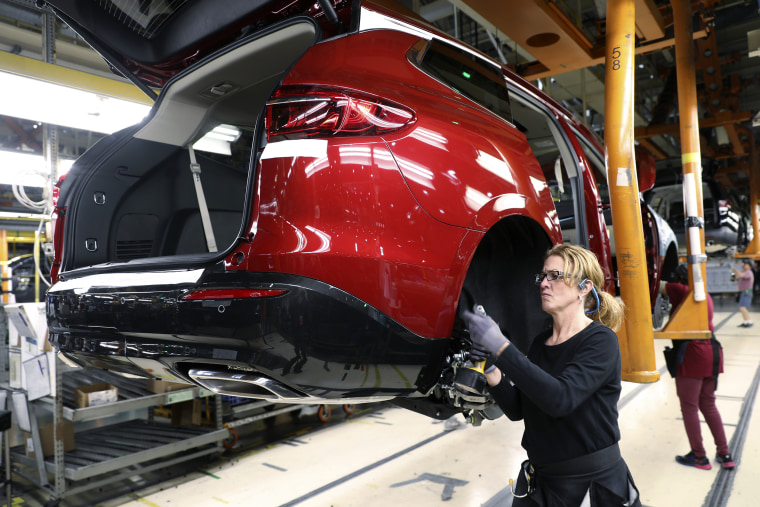When General Motors was hit by a six-week strike last fall, the impact was quickly felt not only at the automaker’s own plants and showrooms but also at independent service shops, where repair parts for vehicles quickly fell into short supply. Now, the rapidly spreading coronavirus epidemic threatens to have the same effect.
China, the epicenter of the viral outbreak, has seen its auto industry all but shut down since late January. That is seriously disrupting the production and shipment of Chinese-made auto parts and components to the U.S., a business worth about $17 billion last year, according to the Center for Automotive Research — even more, factoring in Chinese parts first shipped to Mexico and Canada and then redirected to the United States, CAR data reveals.
Automakers such as GM, Honda and Hyundai are already struggling to maintain supplies, in many cases using air freight to keep supply lines from China open. But “between 60 to 75 percent” of the Chinese auto parts bound for the U.S. wind up in the aftermarket, according to CAR CEO Carla Bailo.
Officially, most Chinese auto plants are now open, but a report by Asian automotive consulting firm ZoZo Go this week estimated that only about 20 to 30 percent of their workers are actually back on the job. At best, those plants are operating at a fraction of their normal rate, if at all.
“There will be an impact on (U.S. vehicle) production within a month, month and a half,” Bailo said, but “it will be felt even sooner on the parts and service side,” she told NBC News.
How this plays out for vehicle owners would depend upon the brand of vehicle they’re driving and what work that vehicle might need.
Automakers such as GM, Honda and Hyundai are already struggling to maintain supplies.
China is a major producer of replacement body parts, which account for about 10 percent of that country’s global auto parts exports, or $14.2 billion last year, according to the United States International Trade Commission. Much of that goes to collision repair work. Chinese-made tires account for another 5 percent of its exports, or $7.9 billion last year. And the list of goods covers everything from suspension components to windshield wipers. The impact may also be felt by do-it-yourself fans looking for replacement parts at the local auto parts store.
“By mid-March, the shortage of supplies will be felt and members are projecting they’ll experience disruption through May or June,” even if operations in China soon get back to normal, said Stacey Miller, senior director of communications at the Auto Care Association, a trade group representing 150,000 auto aftermarket and service businesses.
On a broader scale, the coronavirus epidemic appeared to have had little impact on U.S. car sales in February, said Michelle Krebs, principal analyst for Cox Automotive. Like most industry analysts and planners, Cox had forecast a modest decline in U.S. new vehicle sales for 2020, the figures likely to fall from 17 million last year to around 16.6 million.
“But that’s now the best-case scenario,” Krebs said in an interview, and “could drop to 16 million” if the coronavirus epidemic grows worse.
The problem, analysts warn, is that the outbreak could hit the American market in a variety of different ways:
- If China can’t get things under control, parts shortages will finally impact U.S. production, since almost all American assembly plants rely on at least some Chinese parts
- Even parts coming in from other trade partners could slow down as they depend on the Chinese for nuts, bolts and other basic parts
- As in China, analysts fear American car buyers may be reluctant to go out and shop at dealerships as the disease spreads and quarantines are ordered
- The plunging stock market could trigger an economic meltdown, further restraining U.S. sales.
CAR’s Bailo was one of several experts who told NBC News there already are signs that some sectors of the new car market may be slowing, notably fleet purchases by rental-car companies being hit by the slowdown in travel.
So far, the U.S. auto industry hasn’t felt much of an impact, but analysts see troubling signs that, if the crisis isn’t brought under control soon, the situation could get far worse in a hurry.
